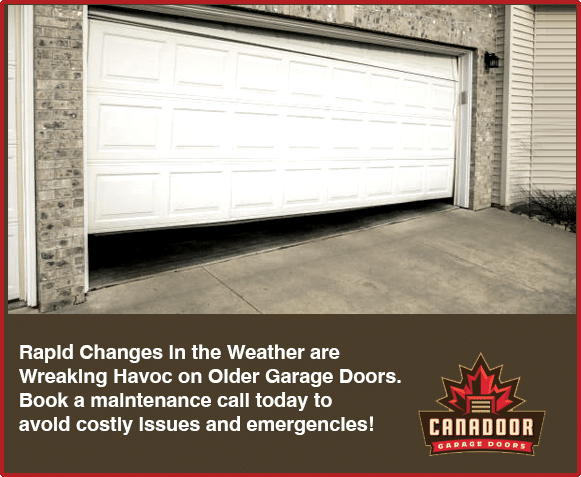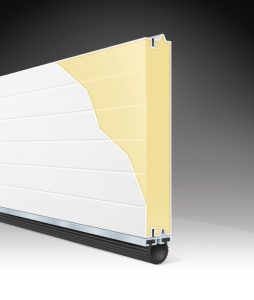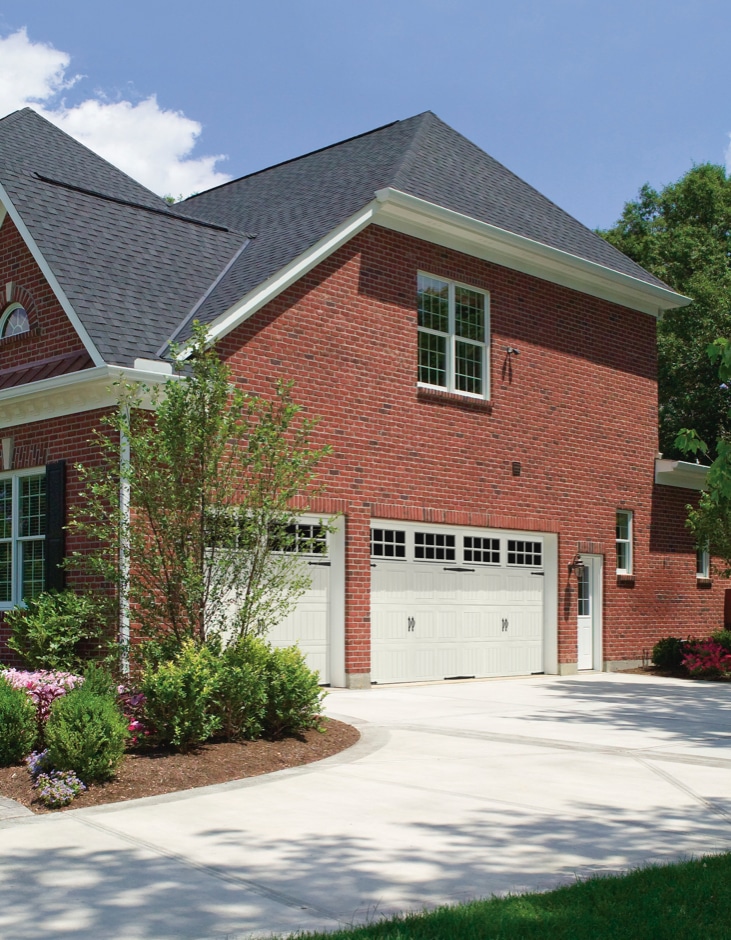Which Garage Door Insulation is Best?
There are many types of insulation available for garage doors, and the different types of insulation your garage door needs depend on your specific situation. In this post, we’ll talk about the best types of insulation on the market today: polyurethane, and polystyrene.
The efficiency of insulation is measured by what’s called the R-value: a measurement of how well the layers of insulation resist heat coming in and out of the garage door. The higher the R-value, the better the insulation.
Polyurethane is similar to spray foam insulation. This type of insulation is dense and creates minimal air gaps within the garage door panel which creates a tighter seal and less air infiltration. Both of these factors contribute to a higher R-value, more robust door panels, and less noise emitted from the garage door while in operation.
The other type of insulation commonly used in garage doors is polystyrene, which is similar to styrofoam. Polystyrene is fitted within the garage door panels. The most notable disadvantage of polystyrene insulation is the presence of multiple air gaps (and ultimately a lower R-value) due to its method of installation. Despite being fitted within the panels, there will always be residual air gaps within the garage door panels.
What’s an R-value and Why Does It Matter?
In our case, the R-value is a measurement of how well the layers of insulation resist heat coming in and out of the garage door. As previously mentioned, the higher the R-value, the better the insulation.
If your garage is located near a high-traffic area in your home, you may want to invest in a garage door with polyurethane insulation. The higher R-value of the polyurethane insulation results in a lower rate of heat coming in and out of the garage door panel – a crucial consideration for winter and summer. Compared to polystyrene insulation, polyurethane insulation is much better at keeping the heat in during the winter and keeping heat out during the summer.
Which Insulation Should I Choose?
Choosing the right type of insulation for your garage door largely depends on your specific situation. For homeowners, it’s almost always wiser to opt for polyurethane over polystyrene insulation. Not only do garage doors insulated with polyurethane resist damage better than polystyrene-insulated doors, but the energy savings you acquire with polyurethane insulation will also very likely outweigh its upfront costs. However, if R-values aren’t as high of a priority for you, polystyrene insulation could be an appropriate choice.
Conclusion
The two most important factors to consider when choosing garage door insulation are the climate and your budget. If your garage door is situated near a high-traffic area of your home, it is essential to consider how well the garage door would insulate your home – especially during the winter and summer. Paying the premium price for a polyurethane garage door could result in significant energy savings in the long run. However, polystyrene insulation is still a viable, budget-friendly alternative.
About Canadoor Garage Doors
Canadoor Garage Doors specializes in residential garage door installations in Barrie. Since 2009, our reputation has been built on superior quality garage door system installation and reliable service repairs. No project is too big or too small for our technicians. We provide complete residential overhead door solutions, including garage doors, openers, springs, cables, and additional hardware.



